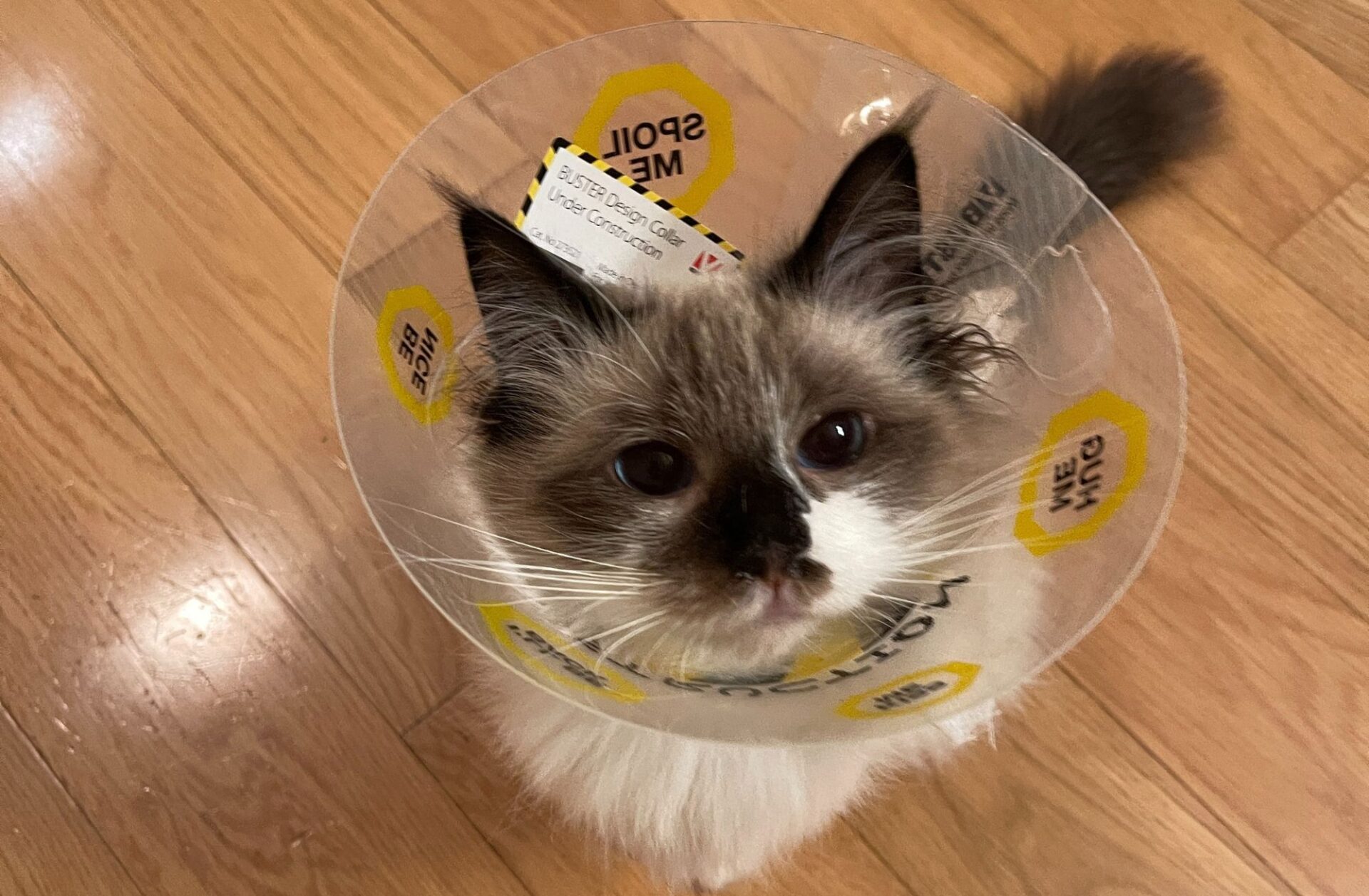Georgia the cat’s story is a touching example of how even a microchipped pet can stay lost if the chip isn’t registered. Found wandering downtown Vancouver, this sweet boy had a microchip—but no registration to lead him home. Read on to learn why microchip registration is just as important as the chip itself.
Lost Cat with Unregistered Microchip: Georgia’s Story in Vancouver, BC
Not all heroes wear capes—some arrive on four paws and a gentle purr.
Georgia, a beautiful grey and white Domestic Medium Hair cat, was discovered wandering alone in the middle of downtown Vancouver. At around two years old, healthy, neutered, and clearly well-loved, Georgia didn’t look like a stray. Yet he was lost—and no one knew who he belonged to.
Luckily, a kind passerby spotted him before disaster could strike. They brought him to the Vancouver BC SPCA, where staff gave him food, safety, and a new name—Georgia.
They scanned for a microchip. Good news: he had one.
Bad news? The chip wasn’t registered.


A Microchip Without Registration Is Like a Letter With No Address
Georgia’s microchip came from a company based in Ontario and was traced back to a local veterinary clinic. But the number wasn’t linked to any pet owner. That simple missing step—microchip registration—meant no way home.
If Georgia’s family isn’t on social media or checking local shelters, they might still be searching. Unaware that their pet is safe and waiting.
The shelter held Georgia for longer than required. Volunteers posted about him and hoped someone would come. No one did.

A volunteer shared:
“If I didn’t already have a dog at home who reacts to other animals, I would have taken him for sure. I’ve met many cats over the years, but this one is truly special—impossible to forget.”
This Isn’t Just Georgia’s Story—It Happens Every Day
Sadly, Georgia is not alone. At recent events hosted by the BC Pet Registry, 1 in 5 animals had an unregistered microchip. That’s 20% of pets who might never make it back home—even though they’re technically “protected.”
We know it’s heartbreaking. But it’s also preventable.
Register Your Pet's Microchip and Give Them the Best Chance Home
Microchipping your pet is the first step. But without registration, the chip won’t help in an emergency. It’s just a number. It doesn’t know your name, your phone, or where your pet belongs.
That’s why the BC Pet Registry exists—to connect that number with you. To make sure no animal like Georgia stays lost when they could be home.

Because pet identification is more than a chip—it’s the link back to love, safety, and home.
Where is Georgia Now?
Although no one came forward, Georgia has since found a second chance and a loving new family to call his own.
FAQs
1. Is a microchip enough to bring my pet home?
No. A microchip must be registered to your name and contact info in a database like the BC Pet Registry.
2. What happens if my pet has a microchip but isn’t registered?
If found, shelters or clinics may not be able to contact you—even if they scan and find the chip.
3. How do I know if my pet’s microchip is registered?
You can contact the vet or the microchip company to check. Still unsure? Email us at info@bcpetregistry.ca and we can look into the microchip status for you.
4. How often should I update my pet’s microchip info?
Whenever you move or change phone numbers. Keeping it current is key to effective pet identification. Also, consider getting your pet’s microchip scanned during annual vet visits to ensure it is always easily scannable.
5. Does it cost extra to update information on the registry?
Unlike other registries, there is no extra cost to make updates to your contact information or your pet’s details, including medical records as well as transfer of ownership.
6. Can I still register a microchip if it’s from another company?
Yes. The BC Pet Registry allows registration of chips from any manufacturer, including those from outside BC.

